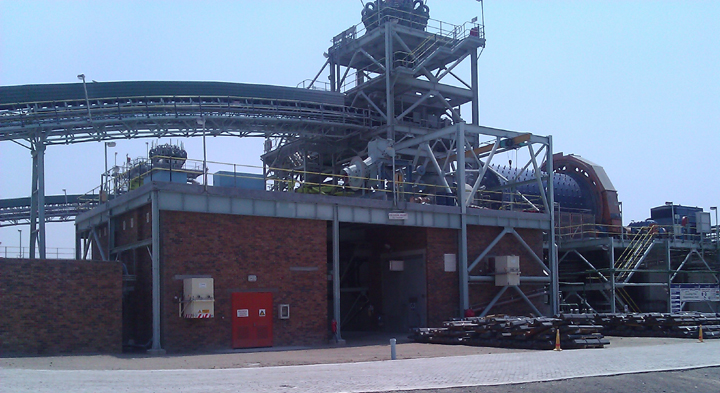Impala Platinum Holdings Limited (Implats)'s Zimbabwean unit Zimplats says government has not yet responded to its objection to the compulsory acquisition of its 28 000 hectares of land.
The grabbed land represents nearly half of the miner's claims.
Stanley Segula, Zimplats' chief operating officer, last week said "we launched an objection and we haven't yet received a response (from government) on that issue", adding that the group is forging ahead with plans to set up a $100 million platinum refinery.
In March last year, President Robert Mugabe's government, through the Mines ministry, ordered the repossession of the land, a move it said was part of efforts to maximise benefits from the country's mineral resources.
"The ministry is following on the creation of real opportunity and investments space by making more land available for new investments, attracting new players into the industry and acting on excess and unutilised ground," said the then Mines minister Obert Mpofu.
Meanwhile, the miner – Zimbabwe's largest platinum producer - said it is currently developing its existing facilities and will boost production in line with the establishment of the facility.
This comes on the back of escalating pressure by government to have platinum miners construct a refinery in the country, with Mugabe threatening to ban exports of the metal in raw form.
Zimbabwe's platinum is currently processed in neighbouring South Africa (SA).
Segula said technical experts from Implats were currently in the country to ensure that the project kicks off in July.
He said the project should be completed within 24 months.
"Zimplats has made a decision to go ahead and establish a refinery,"Segula told a delegation who toured Zimplats' Ngezi operation last Friday.
He said to date, Zimplats had spent $396 million out of the $496 million outlay on establishing a new mine and enhancing operations under a Phase 2 expansion plan.
The group targets to create replacement tonnage for two mines, which were set to be shut down when their life span lapses in 2020, as well as establishing beneficiation facilities.
"Work is underway to complete a bankable feasibility study for Portal 5 mine. We are taking this project (for ratification) to the board meeting in August (2014)," he said.
He added that they were looking at upgrading the refinery with new technology so that they add value to the platinum matte in order to produce platinum group metals (PGMs) such as platinum and gold while also churning out base metals such as nickel.
This year, Zimplats targets a total production of 241 000 ounces per annum before reaching 255 000 ounces in 2015.
On completion of the Phase 2 in 2019, Zimplats will have a capacity to produce 270 000 ounces of platinum per annum.
In order to capacitate Zimplats to accommodate the beneficiation of platinum from other players in the country, the construction of another smelter is in the pipeline.
Although Segula did not give specific time lines and the costs associated with coming up with the second phase of upgrading the base metal refinery to process precious metals, he said they were determined to ensure that they build capacity to process the critical mass.
Platinum miners have to increase their total output to 500 000 ounces per annum from the current 365 000 ounces to justify a refinery.
Zimplats operates the Ngezi Mine while it also runs Mimosa, a joint venture with Aquarius.
Anglo owns the Shurugwi-based Unki Mine.
According to the Chamber of Mines of Zimbabwe, to increase production to the targeted 500 000 ounces per annum - required for the operation of the refinery - there is need for investment of approximately $2,8 billion in mines, $2 billion in processing plants and between $200 and $500 million to ensure adequate power supply.
- dailynews
 Concern over Masvingo black market
Concern over Masvingo black market  Kenya declares three days of mourning for Mugabe
Kenya declares three days of mourning for Mugabe  UK's Boris Johnson quits over Brexit stretegy
UK's Boris Johnson quits over Brexit stretegy  SecZim licences VFEX
SecZim licences VFEX  Zimbabwe abandons debt relief initiative
Zimbabwe abandons debt relief initiative  European Investment Bank warms up to Zimbabwe
European Investment Bank warms up to Zimbabwe  Young Investment Professional (YIP) Graduate Programme 2019
Young Investment Professional (YIP) Graduate Programme 2019 











 Young Investment Professional (YIP) Graduate Programme 2019
Young Investment Professional (YIP) Graduate Programme 2019
Editor's Pick